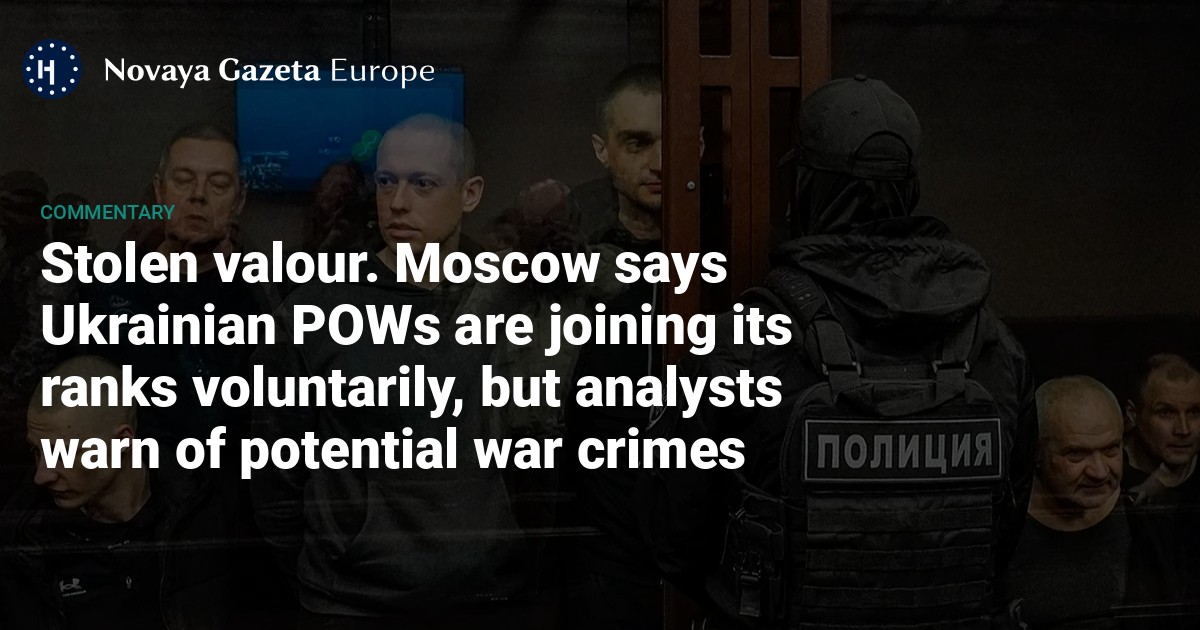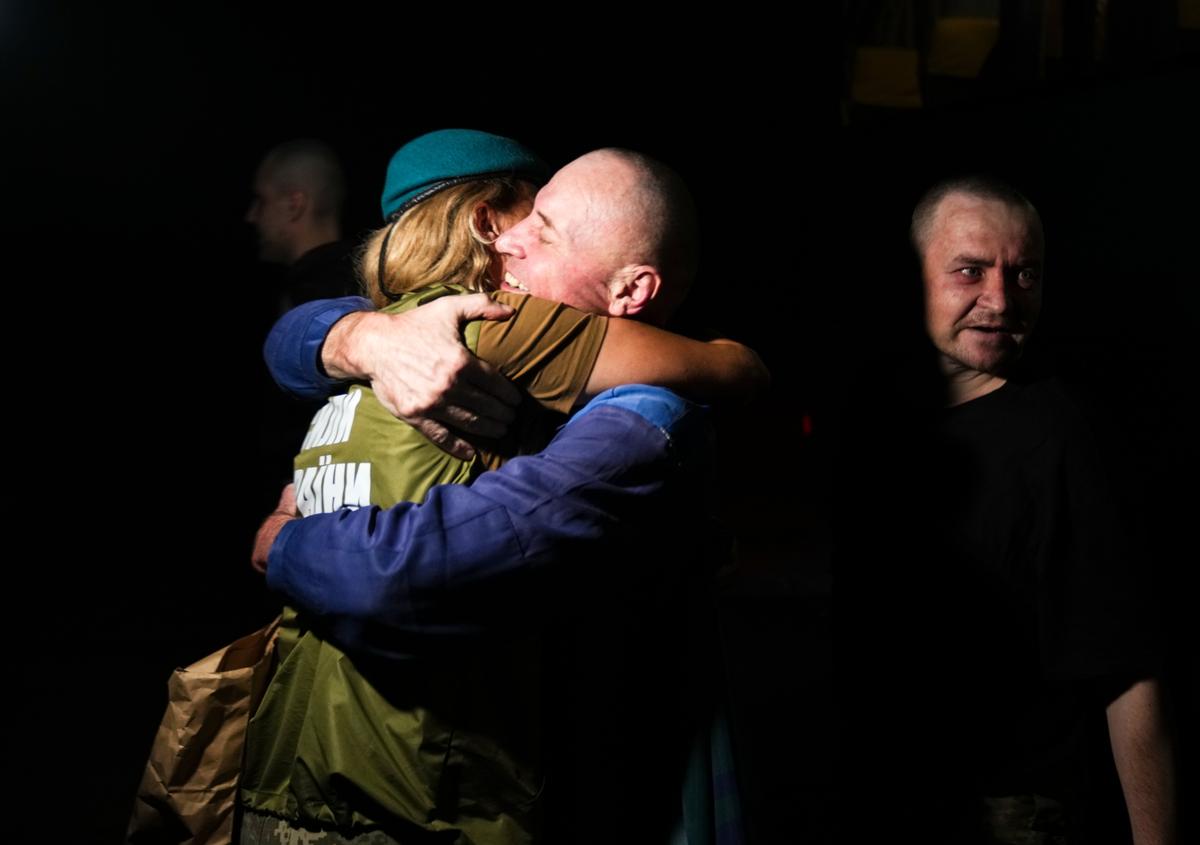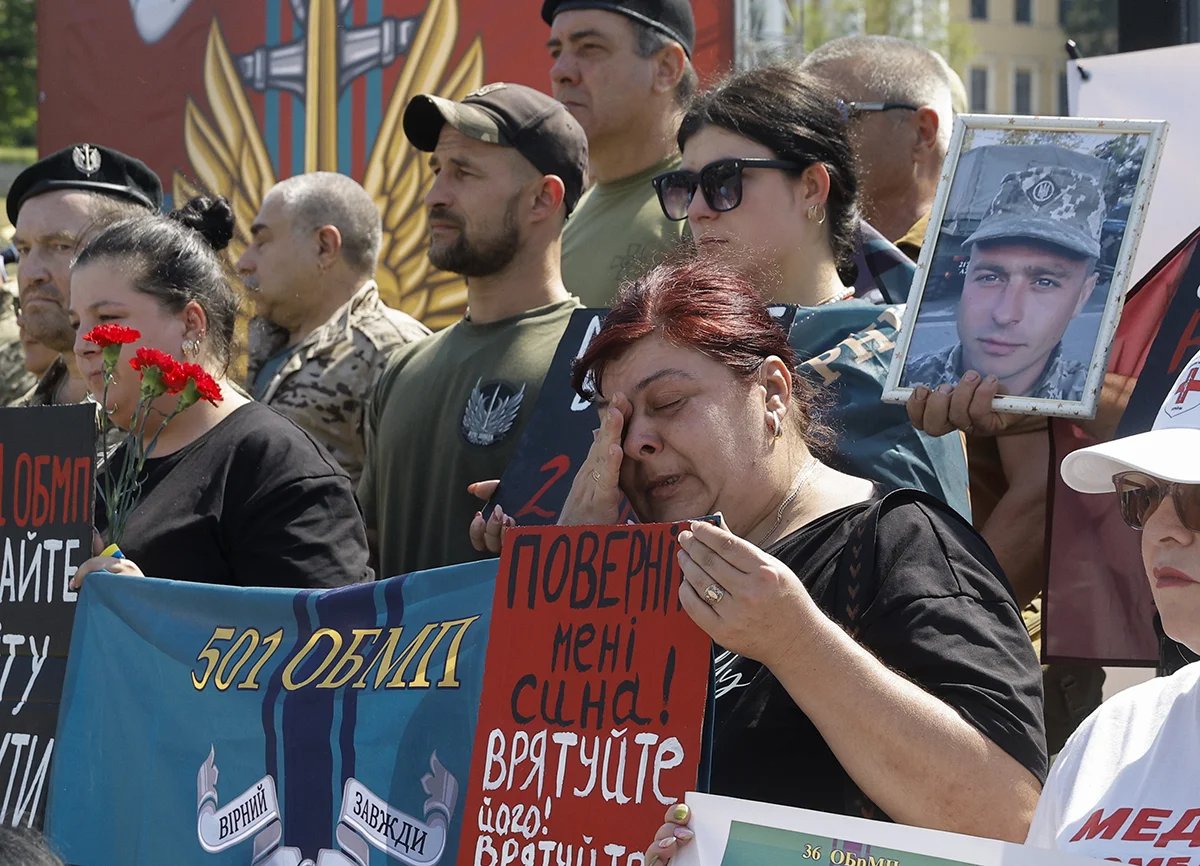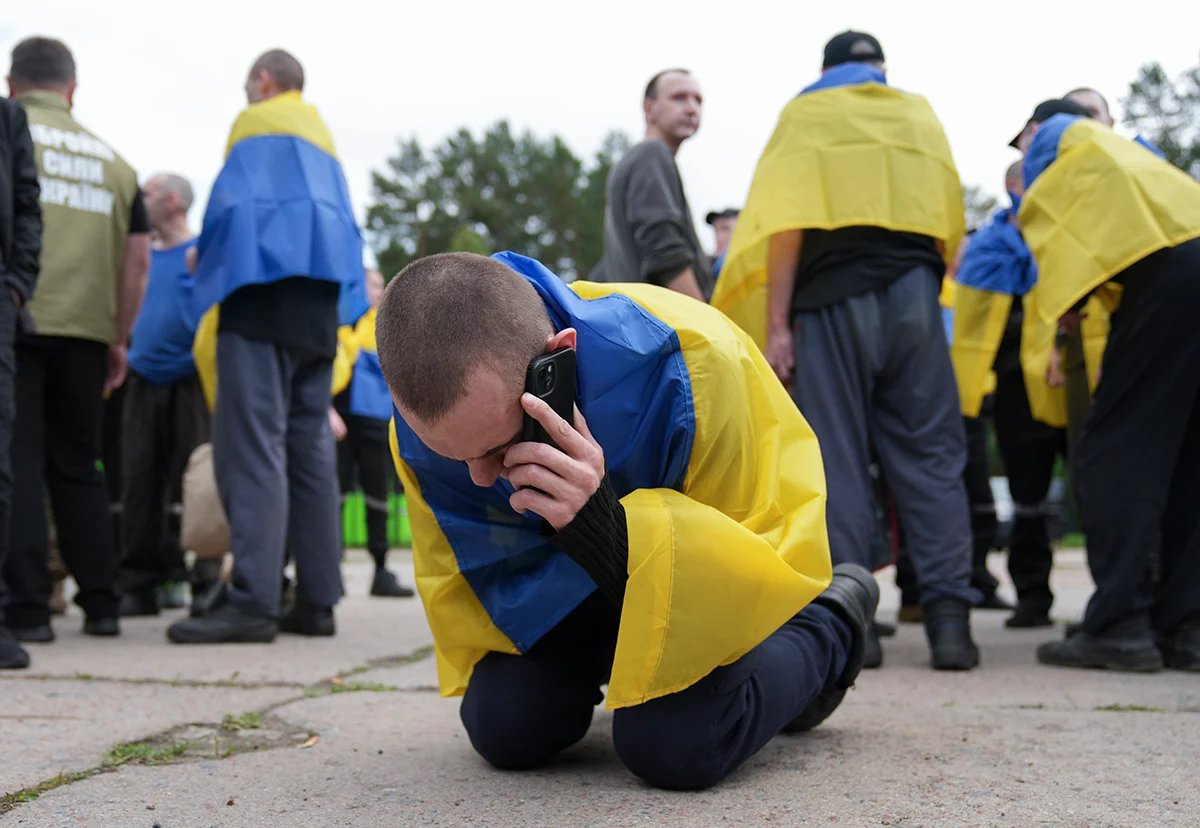



The deputy chairman of the State Duma Committee on CIS Affairs ruffled some feathers last week when he announced the formation of a new battalion within the Russian Armed Forces to be made up of Ukrainian prisoners of war (POWs) who, instead of being sent home in a prisoner exchange, had opted to join Moscow’s invasion of their homeland.
Speaking to Russian state news agency TASS on Friday, former Russian Cossack general Viktor Vodolatsky turned senior member of Russia’s lower house of parliament for the ruling United Russia party, claimed that some captured Ukrainian soldiers had effectively switched sides and were voluntarily serving in the Russian military.
A wide range of torture and physical abuse has been used to coerce Ukrainians to serve in a Russian military unit made up of Ukrainians recruited from Russian penal colonies.
Human rights organisations were quick to warn that these apparent volunteers may actually be victims of blackmail, abuse, or psychological torture, however, and that as using isolation, coercion, or torture for the recruitment of POWs is strictly prohibited by the Geneva Conventions, this would amount to a war crime.
This is not the first time Russia has used Ukrainian citizens — both POWs and civilians abducted in the Ukrainian regions it occupies — for its own military or propagandistic purposes, and, as Novaya Europe reported in May, a wide range of torture and physical abuse has been used to coerce Ukrainians in Russian captivity to serve in the Bohdan Khmelnytsky Battalion, a Russian military unit made up of Ukrainians recruited from Russian penal colonies.

A Ukrainian prisoner of war is embraced following a prisoner swap at an undisclosed location in Ukraine, 23 July 2025. Photo: EPA/STRINGER
Vladimir Zhbankov, a coordinator for the Poshuk.Polon project, which since 2022 has been gathering data on Ukrainian POWs in Russia and the occupied territories, was unable to confirm or deny the existence of the unnamed new battalion when Novaya Gazeta Europe spoke with him, though he conceded that Vodolatsky was unlikely to have announced its creation “without good reason”.
“Our experience has shown that it is very unlikely, or almost impossible, that prisoners would agree to this sort of thing voluntarily,” Zhbankov said of Vodolatsky’s claim that some Ukrainian prisoners had refused to return home, adding that “after being exposed to torture, blackmail, or systematic deception, a person will sign anything that their tormentors want”.
The creation of the new battalion is likely an attempt by the Russian military to mirror Ukraine’s well-known international brigades, such as the Freedom of Russia Legion.
“We know that almost all Ukrainian POWs are being held in complete isolation from the outside world,” Zhbankov continued, adding that such treatment constituted a war crime. The POWs are also systematically tortured and subjected to brutal treatment aimed at physically and psychologically breaking them, according to Zhbankov, using documented methods that include “being beaten, suffocated, given electric shocks, subjected to mock executions, forcibly deprived of sleep and water, and denied access to sanitary care”.
One Ukrainian military expert who spoke to Novaya Europe on condition of anonymity said that the creation of the new battalion was likely an attempt by the Russian military to mirror Ukraine’s well-known international brigades, such as the Freedom of Russia Legion or the Russian Volunteer Corps, though also noted that “if they weren’t able to do it before, it’s hard to imagine that they’re having much success now”.

The relatives of Ukrainian servicemen being held in Russia protest in Kyiv, Ukraine, 23 May 2024. Photo: Sergey Dolzhenko / EPA
This is not the first time that Russia has been accused of coercing POWs to serve in its military. In October 2023, the US-based Institute for the Study of War (ISW) highlighted reports in Russian state media that 70 Ukrainian POWs had been recruited to serve in a so-called volunteer battalion, named after Bohdan Khmelnytsky, the Cossack leader whose 17th-century rebellion against Polish rule ultimately led to the Russian subjugation of Ukrainian lands east of the Dnipro River.
Earlier that year, state-owned news agency RIA Novosti had reported that some Ukrainian POWs being held in Russia had requested Russian citizenship and subsequently signed contracts to serve in a volunteer battalion under the command of one Andriy Tyshchenko, a native of the occupied Ukrainian city of Mariupol, who was subsequently confirmed to have served in the Armed Forces of Ukraine.
Forcing people to fight on the enemy’s side and forced passportisation are violations of the rights of prisoners of war and constitute war crimes.
In late 2023, RIA Novosti published a video in which one alleged member of the unit, Kirill Spassky, described his “first battle with the Armed Forces of Ukraine”, after which the story was widely taken up by pro-Kremlin propagandists and other Russian media outlets.
Arie Mora, a human rights activist and a representative of the Ukrainian Legal Advisory Group, questions under what conditions the naturalisation process was taking place, warning that “forcing people to fight on the enemy’s side and forced passportisation are violations of the rights of prisoners of war and constitute war crimes”.
According to a second report by the ISW in May 2024, the Khmelnytsky Battalion continues to exist and play a role in the war, though the Main Intelligence Directorate of Ukraine’s Defence Ministry has said that it’s unlikely the brigade is combat-ready, describing it as “more of an information and psychological operation”.
In addition to more recent allegations concerning its treatment of prisoners of war, Russia has long been accused of forcibly conscripting Ukrainian civilians from occupied areas into military service.
Two years ago, Andriy Chernyak, a representative of the Ukrainian Defence Ministry’s Main Intelligence Directorate, claimed that the Russian authorities had already forced between 55,000 and 60,000 residents of Russian-occupied Ukraine to serve in the Russian military.
“It’s forced mobilisation: they abduct people from the streets, they come to the few businesses that are still operating and forcibly take people away: they simply make them change their clothes and send them to the front,” Chernyak said.
There have been several cases in which Ukrainians from occupied territories have been taken prisoner by Ukrainian forces while serving in Russian units.
According to Chernyak, Ukrainian students from the occupied territories have faced similar experiences: “One person went to class in the morning, and two days later he was already fighting.”
Yevhen Yerin, another representative of the Ukrainian Defence Ministry’s Main Intelligence Directorate, says that there have been several cases in which Ukrainians from occupied territories have been taken prisoner by Ukrainian forces while serving in Russian units.
Ukrainians who refuse to sign such contracts are threatened with being sent to join Russian assault brigades — akin to being threatened with certain death, Freedom TV, Ukraine’s government-funded Russian-language international broadcasting channel, previously reported.

A Ukrainian former POW celebrates being back on home soil, 12 June 2025. Photo: EPA
The broader issue of the treatment of Ukrainian prisoners detained by Russia may soon receive renewed attention following the latest round of negotiations in Istanbul, which, though yielding little else, produced a new agreement to exchange 1,200 POWs from each side.
Though the Russian use of torture against Ukrainian POWs has repeatedly been alleged since the start of the full-scale war, the issue tends to gain traction after each prisoner swap, as newly released soldiers describe their treatment to the press. In one such case earlier this month, Ukrainian servicemen held in Russia’s central republic of Mordovia said that they had been subjected to beatings, electric shocks, sexual violence, and sustained psychological abuse, according to an investigation by Radio Free Europe/Radio Liberty’s Ukrainian service.
For their part, Russian soldiers returning home from Ukrainian captivity have little in the way of freedom to look forward to. Relatives of Russian prisoners who have been repatriated in such exchanges have repeatedly described how their loved ones were immediately sent back to the frontlines, often without being permitted to see their families. As Novaya Europe previously reported, in some cases even the wounded were denied recovery time before being sent back into combat.
The Russian government has banned independent media. We were forced to leave our country in order to keep doing our job, telling our readers about what is going on Russia, Ukraine and Europe.
We will continue fighting against warfare and dictatorship. We believe that freedom of speech is the most efficient antidote against tyranny. Support us financially to help us fight for peace and freedom.
By clicking the Support button, you agree to the processing of your personal data.
To cancel a regular donation, please write to [email protected]
VPNovaya
Help Russians and Belarusians Access the Truth
